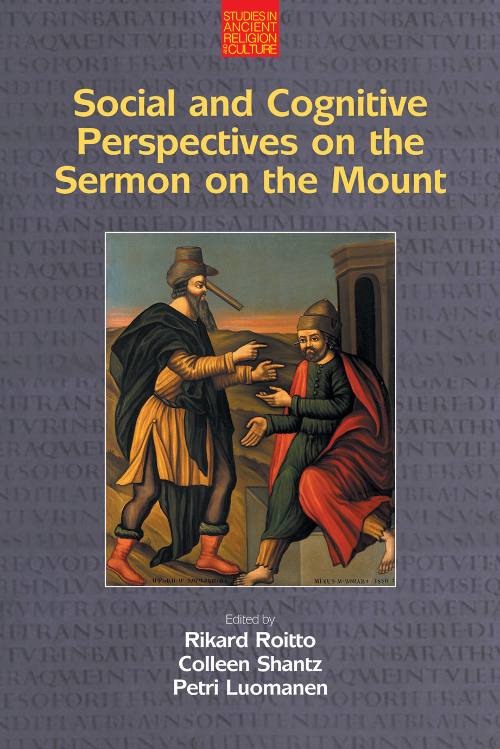Social and Cognitive Perspectives on the Sermon on the Mount
An intriguing and stimulating study which re-interprets the text with more attention to social and cultural perspectives here and now
 Social and Cognitive Perspectives on the Sermon on the Mount
Social and Cognitive Perspectives on the Sermon on the Mount
Roitto, Rikard, Colleen Shantz & Petri Luomannen (eds.)
Equinox, Sheffield
ISBN: 9781781794227
Reviewed by Alec Gilmore
What is it about the Sermon on the Mount (Mathew 5-7) that has made it so attractive and moving throughout the centuries in so many different locations and cultures? A group of international scholars share their thinking.
A century ago our forbears were coming to terms with archaeological digs and discoveries raising questions and throwing fresh light on Scripture. Then came ‘Biblical Criticism’ in varying guises (Form, Textual and Redaction), each clarifying and adding fresh insight to our understanding. Now we are being encouraged to add social factors and human behaviour to the list, amply demonstrated in an intriguing and stimulating study.
For example, who has never struggled to explain ‘the eye is the lamp of the body’ (Matthew 6:22-23 NRSV) until a study of contemporary culture suggested it made perfectly good sense in its original context where the very mention of a lamp would instantly trigger the widely held conviction that the human eye had its own light that dispelled darkness.
Others, preachers in particular, have struggled with more problematic texts, not so much with what Jesus said as what he meant and its relevance for a 21st century western congregation.
‘Loving our enemies’ (5:44), in abstract, is fine, but are we talking about personal relationships (family, race or clan) or nation states? Similarly, when Jesus waxes eloquence (more ‘campaigning’ than ‘manifesto’) on worry or ‘concern for the morrow’ (6:25-34) you wonder about the state of the economy and the make-up of his congregation. Hopefully, not bankers, business people or those for whom yesterday was a queue at the foodbank.
Next, with a penchant for hyperbole, come the ‘impossibles‘ — difficult and provocative sayings and moral assumptions on Anger, Adultery and Divorce (5:21-32). But are they realistic and were they intended to be taken literally? Would they work, and were they in line with human nature or did they require the suppression of natural inclinations contrary to current culture and education? Other issues are flexibility in interpretations of the Torah, Risk (assessment), Altruism, Worrying and Parables.
Protestants with an excessive fear of ‘vain repetition’ will welcome Jesus on Alms, Prayer and Fasting (6: 1-18), but any hint that action may actualise belief is enough to flutter the feathers of the anti-sacramentalists, who might do well to remember that in contemporary culture (mind-body relationship) we may all believe that walking up stairs is healthy but actually doing it is what makes the difference.
The challenge is not to take us back to the social and cultural world of the Ancient Near East but to re-interpret the text with more attention to Social and Cultural Perspectives here and now. That way the text may come alive again.
A body blow to simplistic literalists but a licence to seekers after truth.
Alec Gilmore is a Baptist minister
Baptist Times, 12/08/2022